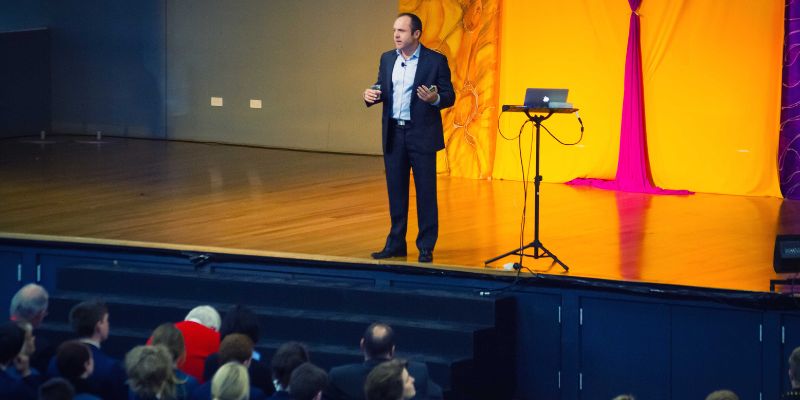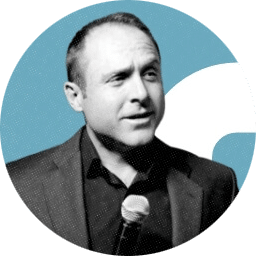In today’s episode, I share valuable insights from the book ‘Quit’ by Annie Duke, shedding light on the importance of knowing when to persevere and when to let go. From climbing Mount Everest to personal endeavors, discover the power of picking the right battles and embracing strategic quitting. Tune in for practical wisdom on achieving success by focusing on what truly matters.
Welcome Aboard: A Stitch in Time
Hello there. My friend, Jonathan Doyle, is with you once again. Welcome aboard to the Daily Podcast. I’m pleased you’re here, always hoping to bring you a little bit of value, a little bit of something that you can execute on each and every single day. Friends, if you’re following my journey, I had a bad crash two weeks ago: 12 broken ribs, a broken shoulder, and a broken collarbone. Look, it’s been tough, but I’ve got through. I’m surprised at how fast I’ve healed, but tomorrow they have to take the stitches out. I hate that part.
So I had a really bad crash back in 2019 and I had a whole bunch of stitches taken out. I can handle the air and the accident. It’s just this part. So give me any prayers for tomorrow as I pick a point on the wall in the nurse’s room and stare blankly at it as they do that. But you are not here to listen to stories of stitch removal: you are here because you want to grow, you are here because you care about personal development, and you’re the kind of person who wants insights, ideas, and things that will move you forward.
Exploring "Quit": Insights from Annie Duke

What I’m going to do today is share with you something from a great book I’ve been reading called Quit. It’s a semi-academic book, it’s got a huge amount of research in it and it’s written by a lady called Annie Duke. It’s a book about quitting, and it just jumped out at me because one of the things that has been challenging for me over many years is knowing when to persevere and when to let things go.
I find it really hard to let things go or to stop doing them. There’s that famous video of Charlton Heston from the National Rifle Association talking about the U.S. Second Amendment, and he said he could prize this weapon from my cold, dead hands. There’s things in life that I’ve really wanted to make work, but I’ve pushed them out, you can take this from my dead, cold hands. I’m not giving it up.
So the art and science of quitting are something that’s really fascinated me for many years. This book jumped out at me, and it had just some really interesting basic ideas. One is that, I think that we are all enculturated into the idea that perseverance is always better than quitting. She gives an example of that old platitude—what is it? ‘Winners never quit, and quitters never win.’
The Everest Analogy: Knowing When to Turn Back

We all grew up with the idea that you stick to things and that perseverance is better than quitting. And we never questioned, it makes a lot of sense. She gives a great example early in the book that is a true story of guys that were climbing Mount Everest. And these guys were in their late forties or fifties. They spent a whole lifetime building up to this special event. And they had made an agreement based on all of the expert advice. If they had not reached the summit of Everest by 11:00 AM on the summit day, then, no matter how close they were, they would automatically turn back and come down.
It was all based on that idea that there are a lot of parameters, and coming down Everest is actually harder than coming up. They knew that they had to leave themselves a very specific amount of time to get back down. So that was the deal they made. And so they end up being caught behind a group of much slower climbers. They got up at midnight and they climbed for 10 or 11 hours or something, they didn’t make the cutoff because everything was moving too slowly. And they were faced with this decision point, and they came back down, turned around, and could see the summit, but they didn’t actually go ahead and do it.
The Unheard Narratives: Quitting with Purpose
She’s telling this story, and it’s interesting because she says you never heard of these guys. The people you have heard of, the climbers in the slow group that kept going. And I think something like 18 of them died. She said, we don’t hear about the people who quit, we hear about others, the people that press on and win, or the people who fail tragically and heroically, but we don’t hear about the people who made the right decision. And he actually chose to quit at the right time. So the book explores a whole attitude towards quitting.
Knowing When to Quit: Parameters and Filters

I’m offering this to you today because part of a well-lived life is knowing when to press on and when to stop. I’m sharing this with you because, like I said, it’s something that’s really challenged me over many years because it’s hard to know when to push on and when to let something go.
I used to teach people the parameters of when to quit. It has to do with things like whether it’s causing you significant emotional, psychological, or physical harm. If it’s damaging people that you’re in close relationships with. There are some good filters, but I want to give you her definition of quitting. It’s a really cool quote from the book. And she says this,
"Success does not lie in sticking to things. It lies in picking the right things to stick to and quitting the rest."
Annie Duke Tweet
Success Lies in Selective Focus: Lessons from Achievers

I’ve had a bit of a feeling about this for many years. If you look at really successful people ,the ones that jump out of us are often people who maybe in acting or sports. Then you pick a sport, like golf or tennis, for example. It tends to throw up these people who just have the most remarkable success. Part of the reason is because they obviously have natural talent. They did a lot of work, and they became single-focused. I think of Tiger Woods, who was hitting a golf ball pretty well at the age of four and never did anything else. And what happens afterwards, who knows?
There’s examples of people who move into different things, Michael Jordan is a good example. Obviously, he was at the peak of basketball for many years, but it has gone on to have enormous success in business. Some people can find a kind of second career, but often the thing that makes them famous is because of that relentless, single focus.
Identifying Your Unique Skill Set: The Path to Success

The question becomes: what are the things that we choose to focus on, and how good are we at letting go of the rest? If you want outside success in life. So even today I was talking to Karen, and as I mentioned a few days ago, launching a huge new project in one of our other businesses. It’s a complex major program involving major stakeholders at a national and international level. And there’s a lot to it. She’s constantly asking me, she’s going, what do I focus on today? Because she’s got so much that she’s responsible for. Part of me is helping her filter; part of what I do is helping her to filter what it is that needs to be stuck to, and what needs to be delegated or let go.
I think all of us have something similar in our lives. You have to try and get very clear on what you’re good at and what you really have the skill set for. I’m a true believer in that idea. I think, and I genuinely believe, that God creates all of us with a unique skill set. Now I can do a bunch of things. I’m a reasonably good writer. I enjoy podcasting and the video stuff but the thing that I tend to do really is big events, big crowds, big stages, five, 10,000 people, plus conference events, keynotes, that sort of stuff. I love that. It’s just something that feels very natural to me. When I’ve got a big event coming up, I have to learn to let go of all the things around it.
The Power of Letting Go: Finding Success Through Strategic Quitting

Let’s come back to this quote: success does not lie in sticking to things. It lies in picking the right thing to stick to and quitting the rest. So what’s the right thing to stick to? In relationships, it’s a person you have committed yourself to for life, that’s the right thing to stick to. You stick to that. You stick to families and close friends. I think you’ve got to learn to stick to those unique skill sets that you’ve been given that you can really use to execute on.
As I reflect on the broad outlines of the messages that I’ve been giving here on this podcast for a long period of time, I think one of the ubiquitous messages and one of the things that I keep coming back to is trying to consistently be clear on why you are here, what you’re better at than other things, and doing more of that. That seems to be the thing that can really move you forward.
I’m doing more and more consultancy work these days for big organizations. Sometimes I pinch myself because I get paid to sit in a room with really interesting people and listen to them describe their lives, their experiences, and what they’re trying to fix. I just find it ridiculously interesting. I actually like going away and thinking really deeply and strategically about what they say and joining all the dots between multiple people and organizations, I have an affinity for it. So my task is to let go of all the things around me and do more of that.
It’s not complex, but in the busyness and craziness of daily life it can be so easy to forget it. So, my friend, this is just a message to you that your success in life won’t come from relentlessly sticking it to everything. It’ll come from identifying the things that you should be sticking to and learning to let go of all the rest.
Closing Remarks
So my friend, that is it for today. I’d love for you to subscribe to the podcast. If you’re not a regular subscriber, wherever you’re listening, listen to Spotify or Apple Podcasts, Google; just hit that subscribe button, It does make a big difference. There’ll be a bunch of links here, including a link to the website, jonathandoyle.co. You can find out about my consultancy work. You can book me to speak. And if you’re on Instagram, @jdoylespeaks.
God bless you my friend. I hope this is useful to you. Feel free to reach out at any time. If there’s a topic, an issue, or a challenge that you’re having, send me an email. jonathan@jonathandoyle.co. I would love to make an episode just for you.
God bless you. This has been the Daily Podcast. My name is Jonathan Doyle. You and I are going to talk again tomorrow.




